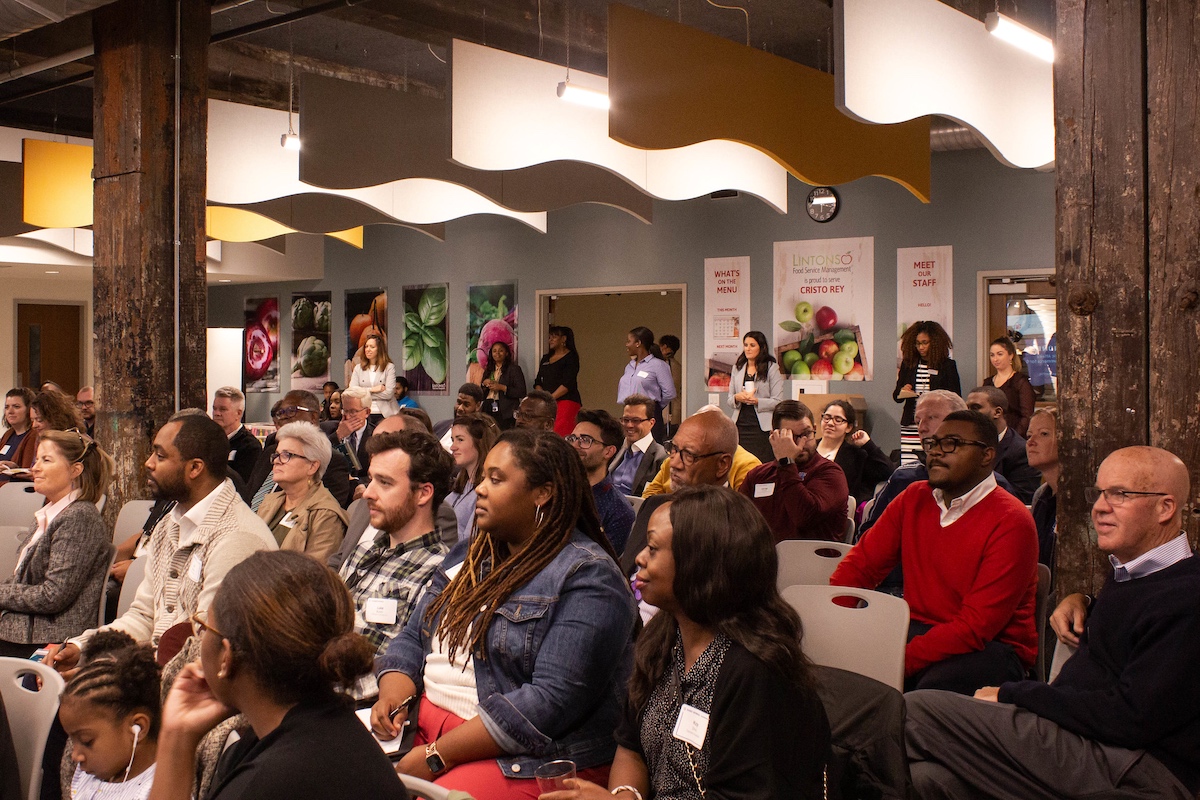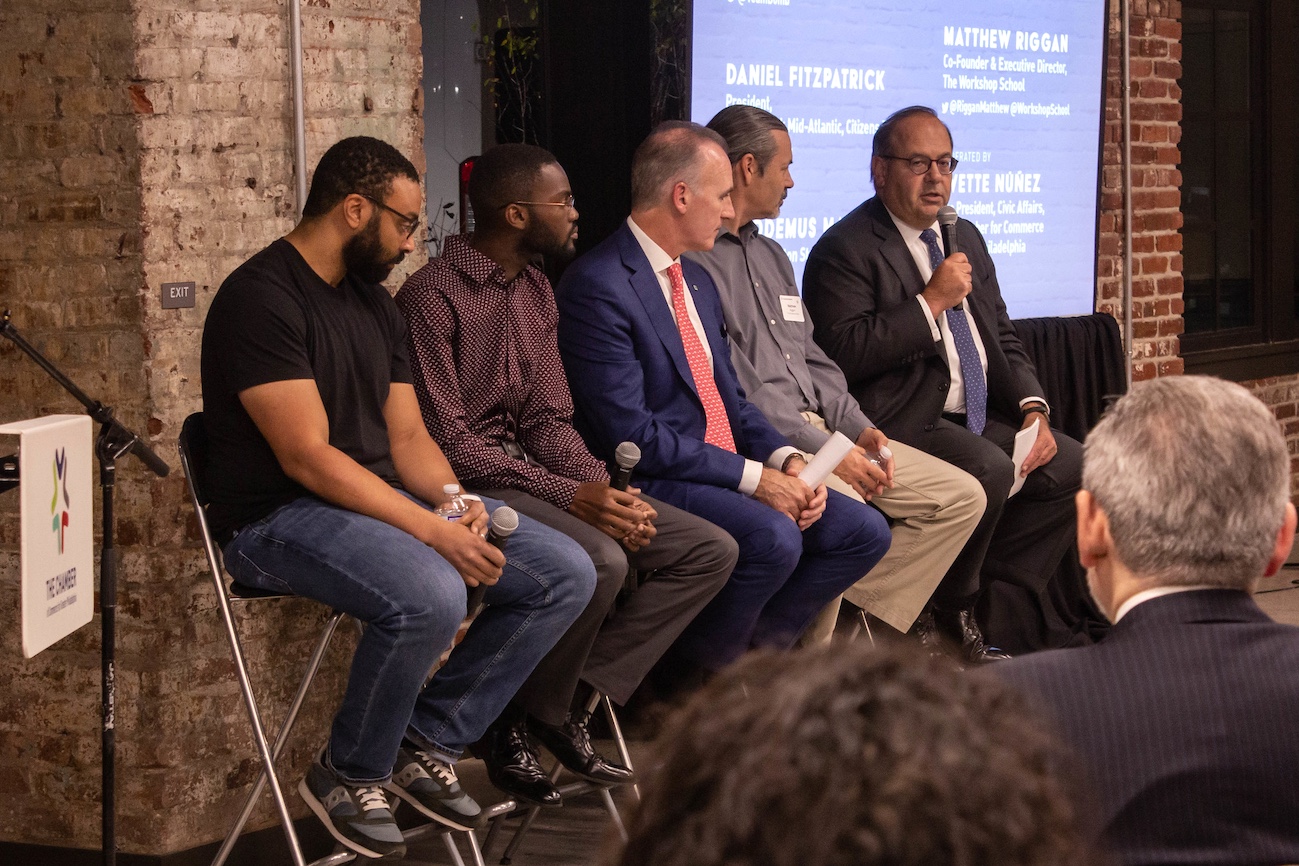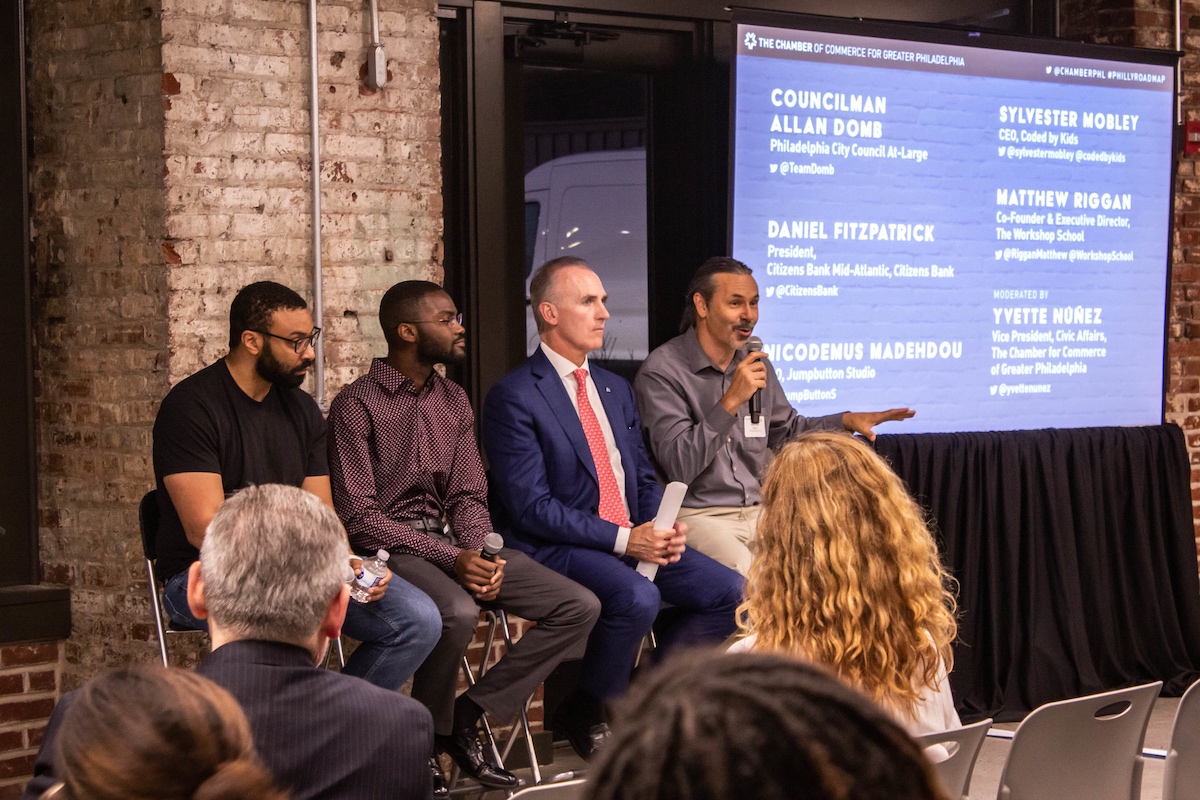The consensus was clear: We need to teach adults how to think differently about the entrepreneurial mind, and specifically, students’ ability to absorb entrepreneurship principles even in grades K-12.
On Oct. 23, The Chamber of Commerce for Greater Philadelphia’s Roadmap for Growth initiative held its first issue forum of the program year, “The Entrepreneurial Mind: Teaching Kids How to Think Differently.”
The panelists, including Coded by Kids CEO Sylvester Mobley, Philadelphia City Council Member Allan Domb, Citizens Bank Mid-Atlantic Region President Daniel K. Fitzpatrick, JumpButton Studio founder and CEO Nicodemus Madehdou and The Workshop School cofounder and Executive Director Matthew Riggan, all agreed that students who are taught entrepreneurship become not just business owners, but change agents in the workforce even if they never start a business.
“The best part about teaching students about entrepreneurship is that they don’t wait around to be told what to do,” Mobley said. “They instead figure out what needs to get done and do it.”
As tables all around the City debate the best ways to prepare our future workforce, it strikes me how few are talking about growing the number of businesses with jobs ready to be filled. Small businesses have accounted for 61.8% of net new jobs over the past 20 years nationally, and so we know that growth for Philadelphia is dependent on small business growth.
With a quarter of all Philadelphians living in poverty, our schools need to generate future employers and entrepreneurs, not just employees. As Domb put it, “you make a living working, you build wealth owning.” By teaching entrepreneurship, we have the ability to fast-track wealth building in low-income communities.

(L to R) “The Entrepreneurial Mind: Teaching Kids How to Think Differently” attendees. (Photo courtesy of The Chamber of Commerce for Greater Philadelphia)
Why wait? Madehdou founded Jumpbutton, a tech startup for young developers, precisely because he “didn’t want to wait until [he] was a senior in college to get an internship that could teach [him] about starting a business.” Since its founding while he was a freshman in high school, Madehdou has won two Philly Geek Awards; was named a Young Futurist by The Root; was honored at the White House twice, once while still in high school; and named a 2018 Forbes Fellow.
But entrepreneurship can’t be added to decades-old formulas for teaching. Riggan warned the audience that beyond teaching entrepreneurship, we have to change how we teach.
“If we bring entrepreneurship into schools but still deliver that with someone standing in front of the room giving a lecture, we get death by elective,” the educator said. “That is not the way to do it.” Instead, students at The Workshop School, a project-based learning high school in West Philadelphia, challenges students to solve real world problems. Each year, students compete for seed funding for their startups.
Teaching our youth entrepreneurial skills can have a momentous impact on our region’s economy. Creative thinking is crucial to modern innovation. We need to encourage our youth to be problem solvers. Our young people are our next generation of employers — if we foster that now.
The Roadmap Issue Forum in October was the first of four neighborhood-based programs that directly connect to the four policy pillars of the PHL Neighborhood Growth Project (NGP). Born out of the Roadmap for Growth, NGP advocates for a strong, inclusive, and growing economy that benefits every neighborhood. To learn more and join the coalition, email me at ynunez@chamberphl.com.

(L to R) Panelists Sylvester Mobley, Nicodemus Madehdou, Daniel K. Fitzpatrick, Matthew Riggan, Allan Domb. (Photo courtesy of The Chamber of Commerce for Greater Philadelphia)

This guest post is a part of Technical.ly's Workforce Development Month of our editorial calendar.
Join our growing Slack community
Join 5,000 tech professionals and entrepreneurs in our community Slack today!
Donate to the Journalism Fund
Your support powers our independent journalism. Unlike most business-media outlets, we don’t have a paywall. Instead, we count on your personal and organizational contributions.

VCs are losing optimism for Philly startups as investment dollars dip

I know civic technology. This is not civic technology.

Philly restaurant analytics startup ClearCOGS raises $3.8M — thanks to its Chicago presence


